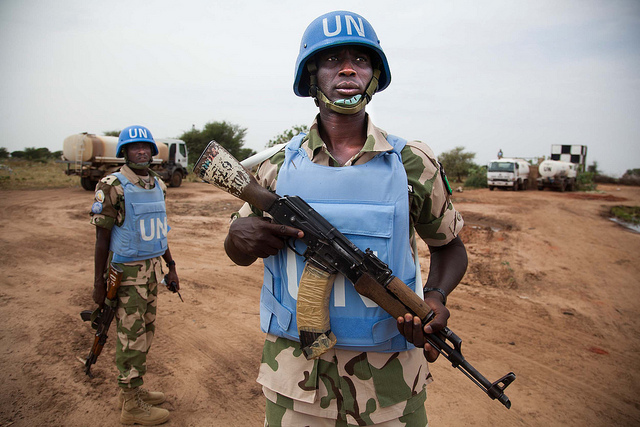Food Insecurity Affects Genetics of Newborns
/Michael Ransom, Contributing EditorLast Modified: 00:25 a.m. DST, 18 May 2014
WEST KIANG, Gambia -- The nature versus nurture debate is a compelling and enduring question. Are humans resigned to their instinct and biology, or can their experiences and influences negotiate basic psychology?
While the best answers to this dilemma are generally rooted in theory, a new study published in Nature Communications journal offers valuable quantitative insight. Headed by Paula Dominguez-Salas, a team of London School of Hygiene and Tropical Medicine scientists working in The Gambia researched 2,040 women to examine the effect of pre-pregnancy diet on the health of their children.
According to the study, mothers can in a sense "nurture" the nature of their child, before their youngster is even conceived. Maternal nutrition at conception modulates DNA methylation of human metastable epialleles concludes that in the years and months leading up to conception, the maternal diet can alter both the health and DNA of the baby.
Operating from a Medical Research Council outpost in West Kiang, Gambia, researchers observed women in 34 villages throughout rural parts of the east African nation. Women participants were pre-menopausal, not expecting, and had committed to live in West Kiang for the trial period of July 2009 to July 2011.
Monthly pregnancy testing enabled scientists to place the women into three categories--a non-pregnant control group, women who became pregnant in the rainy season (July-September 2009), and mothers who conceived in the dry months (February-April 2010). Experts then compared hair and blood samples of the Gambian infants to better understand the relationship between foodstuffs and newborn health.
Typically, the rainy season offers vegetables such as leafy greens, eggplant and pumpkin. These are extremely rich in vitamins and minerals, but may provide less substantial caloric benefits. In contrast, Gambians eat more hearty meals during their dry season, including yams, peas and maize. Generally fresh fruits and vegetables are limited during this time of year, and nutrition may be lacking as a result.
As opposed to their original hypothesis, the team found that the rainy season created optimal conditions for a soon-to-be mother. Researchers denote this time of high precipitation as the "hungry" time of the year. Despite annual food insecurity during this period, vegetable offerings are concentrated with essential nutrients.
Nutrient-rich food is seemingly the most important component of a mother's diet--even more significant than a higher-protein, higher-calorie analog. In scientific terms, the seasonal foods typical of July to September promoted DNA methylation during pregnancy, which impacts the expression of an individual's genetic code. Whether the methylation process thrived or not, the consequences of this molecular activity are lifelong.
The findings imply another example of the way that inequality so-often turns cyclical, perpetuating through bloodlines. Not only do women in developing economies have more difficulty gaining prenatal care and pediatric support during the early months of pregnancy and the pivotal years of child development, but we now know that the resources available to the mother help to define the child's genetic makeup, long before pregnancy. This makes education and food security all the more necessary.
A child's very "nature" is indeed impacted by the "nurture" he or she receives in the form of macrominerals, and essential vitamins B and D. Scientists are using this study and others like it to identify the ideal diet for expectant mothers. Future studies will determine the most beneficial diet for the maximized health of the baby. Until then, newborns in The Gambia and other food-insecure regions will be fundamentally at-risk for micronutrient deficiency and the genetic repercussions.
Follow Michael on Twitter Twitter: @nahmias_report Contributing Editor: @MAndrewRansom
Related articles
- Mother's Diet before Pregnancy Influences her Child's gene: Study (mdconnects.com)
- Mother's diet at time of conception may alter baby's DNA (sott.net)
- Diet Plans For Women Still Create Gene Changes In Children Long Before They're Conceived (medicaldaily.com)
- Pre-pregnancy diet 'affects genes' (bbc.co.uk)
- What You Eat Before You're Even Pregnant Can Affect Your Baby, Says New Study (healthyhighway.wordpress.com)

















































